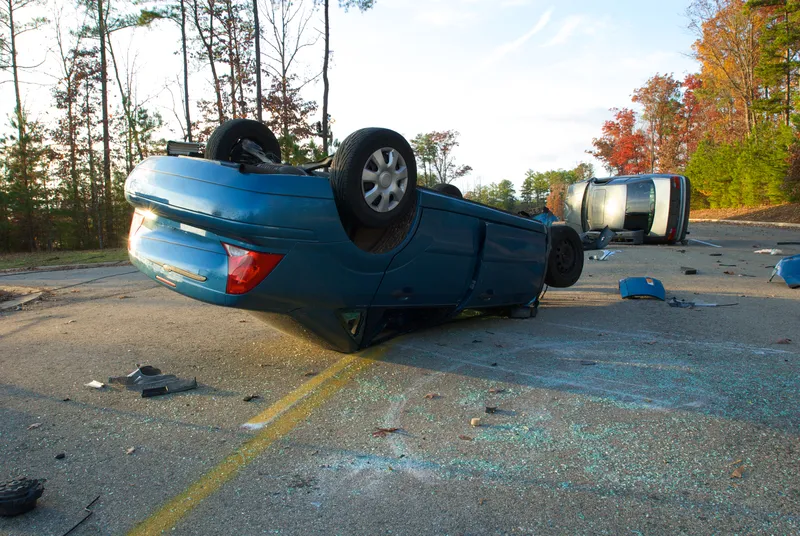According to market analyst IDTechEx, which tracks the development of 45 electric vehicle categories and not just electric cars, there are now lithium-ion battery options for everything from forklifts and mobility vehicles for the disabled to e-bikes. Indeed, almost all the e-bikes in the West and Japan use them. 8000 forklifts in the USA have fuel cells with lithium-ion batteries though the Toyota Mirai fuel cell car and the Prius hybrid car still use NiMH.
Whilst capturing market in micro hybrid cars,
July 13, 2015
Read time: 3 mins
According to market analyst 6582 IDTechEx, which tracks the development of 45 electric vehicle categories and not just electric cars, there are now lithium-ion battery options for everything from forklifts and mobility vehicles for the disabled to e-bikes. Indeed, almost all the e-bikes in the West and Japan use them. 8000 forklifts in the USA have fuel cells with lithium-ion batteries though the Toyota Mirai fuel cell car and the Prius hybrid car still use NiMH.
Whilst capturing market in micro hybrid cars, lead-acid batteries are being squeezed out of other categories of pure and hybrid electric vehicles. Lithium-ion batteries are the norm for the pure electric car market which is up a remarkable 55% in 2014 on 2013. They are also the norm in plug-in vehicles from buses to cars and military vehicles.
The bottom line is that lithium-ion batteries have no serious rivals for the coming decade if we talk percentage market share as outlined in the IDTechEx report Analysis of over 140 Lithium-based Rechargeable Battery Manufacturers: Chemistry, Strategy, Success.
So who is winning with these batteries in EVs?5445 BYD claims leadership but that appears to be in numbers when MWh is a better metric. Here 598 Panasonic was well ahead again in 2014 with 2,726 MWh followed by AESC at 1,620 then 954 LG Chem 886 MWh and BYD 461MWh, closely followed by 4962 Mitsubishi/GS Yuasa 451 MWh and 1809 Samsung 314 MWh as it gives preference to phones. Of those only BYD and Mitsubishi also make the vehicles. However the tables might turn in the following years as LG Chem became in 2015 the largest manufacturer of automotive battery packs. Indeed, LG Chem is supplying thirteen different global automakers out of the top 20 global brands, including 1959 GM, 278 Ford, 1684 Hyundai, 2453 Renault and this year 2069 Daimler joined his ranks.
Dr Peter Harrop, leader of the EV team at analysts IDTechEx comments, “Profits are another thing of course but we expect some of the leaders to be profitable in the blood bath of now 200 manufacturers of lithium-ion capacitors with chronic over-supply even before the planned Tesla Gigafactory. Many will go to the wall. We observe that, although the lithium iron phosphate (cathode) batteries are made by the largest number of these manufacturers, they are not winning the leadership stakes partly because energy density is key for most EVs. The battery chemistry with largest battery production will be by far NMC in the following years”.
“Lithium titanate is still a minor part of the business though taking market share.5392 Toshiba for example is marketing them in micro and mild hybrid cars. The term actually refers to the anode and such anodes, giving benefits such as improved cycle life, are made with five different cathode types. For now, good old graphite anodes win but a large number of companies are developing silicon-based anodes for EV batteries. Clearly there is a robust competition with consensus that costs will at least halve in the coming decade further boosting the market. As with production of electric vehicles themselves, the Japanese are winning but the Koreans and Chinese are forces to be reckoned with. The elephant in the room is 1686 Toyota, by far the biggest EV manufacturer in the world and having one of the most impressive patent portfolios and ongoing battery research programs. Another fascinating development this year is XALT of the USA landing a one billion dollar order for lithium-ion batteries for Chinese buses based on a superior anode and cathode”.
Whilst capturing market in micro hybrid cars, lead-acid batteries are being squeezed out of other categories of pure and hybrid electric vehicles. Lithium-ion batteries are the norm for the pure electric car market which is up a remarkable 55% in 2014 on 2013. They are also the norm in plug-in vehicles from buses to cars and military vehicles.
The bottom line is that lithium-ion batteries have no serious rivals for the coming decade if we talk percentage market share as outlined in the IDTechEx report Analysis of over 140 Lithium-based Rechargeable Battery Manufacturers: Chemistry, Strategy, Success.
So who is winning with these batteries in EVs?
Dr Peter Harrop, leader of the EV team at analysts IDTechEx comments, “Profits are another thing of course but we expect some of the leaders to be profitable in the blood bath of now 200 manufacturers of lithium-ion capacitors with chronic over-supply even before the planned Tesla Gigafactory. Many will go to the wall. We observe that, although the lithium iron phosphate (cathode) batteries are made by the largest number of these manufacturers, they are not winning the leadership stakes partly because energy density is key for most EVs. The battery chemistry with largest battery production will be by far NMC in the following years”.
“Lithium titanate is still a minor part of the business though taking market share.







